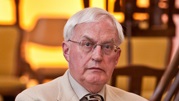XII Kant-Readings International Conference. Kant and the Ethics of Enlightenment: Historical Roots and Contemporary Relevance
 12th Kant-Readings International Conference
12th Kant-Readings International Conference
Kant and the Ethics of Enlightenment: Historical Roots and Contemporary Relevance
Immanuel Kant Baltic Federal University, Academia Kantiana
Kaliningrad, April 21-25, 2019
The Kant-Readings International Conference has taken place in Kaliningrad every five years since 1974. This 2019 conference aims at investigating the ethical conceptions of the Enlightenment from the perspective of Kant’s philosophy. Enlightenment ethics focused on traditionally important notions for human beings, such as happiness and moral goodness, and influenced not only their epoch but the following centuries until today. In spite of the fact that all these doctrines were founded on different moral concepts like moral sense, reason, or God, they equally searched for a justification of duty and of the possibility of moral motivation. Moreover they raised the question of the relation between morality and politics, education, and coercion.What, if any, are the common features that characterise ethical doctrines during the Enlightenment? Are there sufficiently similar features in the various ethical doctrines of Kant’s day that would warrant the title of ‘Enlightenment ethics’? It is not less important to understand the ethical content and significance of the Enlightenment project itself and to answer the question of whether the project of enlightenment still can be rationally defended.
Kant’s ethics directly relates to the various conceptions of enlightenment put forward by his immediate predecessors in Germany, Great Britain, and France, such as Wolff, Rousseau, Shaftesbury, Hutcheson, Hume, and others. We are interested in understanding the moral aims of the Enlightenment, and the role of Kant’s philosophy in how the enlightenment project extends beyond its initial epoch. How has Kant’s moral philosophy been received and criticised, and how has it influenced the evolution of enlightenment thought in other countries, especially in Russia? To what extent can Kant’s philosophy be fruitful for thinking about ethics and enlightenment in our time? What can Kantian philosophy offer to address the current and prospective challenges, produced by technological advancement?
The conference will be structured into the following sections:
-
Kant’s Ethics and Its Relevance
-
Kant and the History of Enlightenment Ethics
-
Reception of Enlightenment and Kant’s Ethics in Russia and the World
-
Enlightenment Ethics and Aesthetics in Correlation
-
Kant’s Ethics in Neo-Kantianism
-
Enlightenment, Politics, and Education
-
Science, Technology, and Enlightenment Ethics
-
Kant and Radical Enlightenment (section organized by The Contemporary Kantian Philosophy Project, directed by Robert Hanna)
Hanna writes: By “radical enlightenment,” we mean any epistemic, metaphysical, metaphilosophical, aesthetic, scientific, moral, social, or political interpretation of Kant’s injunction to“dare to know,” or “dare to think for oneself” (Sapere aude!), that is more progressive — or “further left” — than classical Hobbesian or Millian liberalism, or contemporary neoliberalism. The theme of this section comprehends any topic in Kant’s or Kantian philosophy that explores its positive or negative relationship to radical enlightenment in this sense, with a special interest in exploring the implications and/or significance of that topic for contemporary issues.
For students will be organized the Forum for Young Scholars.
The conference languages are Russian, English, and German.
We call for abstracts of 300-350 words. Abstracts can be written in one of the conference languages and address one of the seven sections listed above.
Please send your abstract by the 1st of December 2018 to: academia@kantiana.ru
Organization fee is 2000 Rub. (= €28 or $32).
Duration of plenary presentations is 60 min. (40-45 min. talk and 20-15 min. discussion).
Duration of main presentations is 50 min. (35 min. talk and 15 min. discussion).
Duration of section presentations is 30 min. (20 min. talk and 10 min. discussion).
Programme committee chairpersons: Vadim A. Chaly & Nina A. Dmitrieva
Organisation committee chairperson: Nina A. Dmitrieva
Funding Information: This international conference is supported by the Russian Academic Excellence Project at the Immanuel Kant Baltic Federal University and by the grant of RFBR (no. 19-011-20160).




